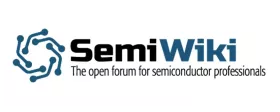Andy Bryant Will Now Lead Intel Into The Foundry Era
The announcement that Paul Otellini will step down in May 2013 is extraordinary in the history of the way Intel makes CEO transitions. They are thoughtful, deliberate and years in the making, unlike today's announcement. Twenty years ago Otellini and Andy Bryant were in the top echelon of Andy Grove’s executive team and yet Otellini was already known to be the eventual successor to Craig Barrett (who took Grove's place). Otellini’s understanding of the PC market gave him the edge over Bryant who would take the position of CFO in 1994 and hold it for 13 years. Since Intel’s market valuation peak in 2000, the company's x86 business has underperformed while process development has outperformed and is about to reach a 4 year lead relative to the rest of the industry. Since leaving his CFO post, Bryant has focused on Intel's manufacturing excellence and in a sense outperformed Otellini's side of the business. Bryant’s work in this area led to his elevation as Chairman of the Board this past May. What is transpiring now is the most radical transformation of the company since Grove and Moore exited the DRAM business in the early 1980s in order to focus on the nascent, yet highly profitable and growing x86 processor business that powered the PC revolution. Foundry now will reign supreme.
To read the full article, click here
Related Semiconductor IP
- Specialized Video Processing NPU IP for SR, NR, Demosaic, AI ISP, Object Detection, Semantic Segmentation
- Ultra-Low-Power Temperature/Voltage Monitor
- Multi-channel Ultra Ethernet TSS Transform Engine
- Configurable CPU tailored precisely to your needs
- Ultra high-performance low-power ADC
Related Blogs
- Should Intel Offer Foundry Services?
- Can Intel be a Leading Semiconductor Foundry?
- Will Intel leave Mobile, Foundry, and FPGA Business?
- Intel licenses ARM physical IP for foundry customers
Latest Blogs
- Silicon Insurance: Why eFPGA is Cheaper Than a Respin
- One Bit Error is Not Like Another: Understanding Failure Mechanisms in NVM
- Introducing CoreCollective for the next era of open collaboration for the Arm software ecosystem
- Integrating eFPGA for Hybrid Signal Processing Architectures
- eUSB2V2: Trends and Innovations Shaping the Future of Embedded Connectivity
